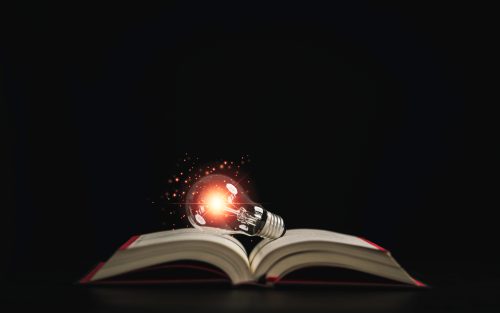 The UK Supreme Court issued a landmark ruling in the appeal filed by Dr. Stephen Thaler, who was seeking two patents for inventions made by DABUS, an artificial intelligence (AI) system he created and owns.
The UK Supreme Court issued a landmark ruling in the appeal filed by Dr. Stephen Thaler, who was seeking two patents for inventions made by DABUS, an artificial intelligence (AI) system he created and owns.
This high-profile matter has traveled through the courts in several different countries and is reaching the end of the line in the United Kingdom.
The case
The case involved two British patent applications for two inventions filed by Dr. Thaler and listing DABUS as the inventor—meaning both applications failed to name a traditional human inventor. The first invention was named “Food Container” and concerned the shape of parts of packaging for food, while the second was a flashing light. In the patent application forms, in the box where the filer is asked to indicate how he had the right to be granted a patent, Dr Thaler first wrote “by ownership of the creativity machine ‘DABUS’” a phrase later amended in the statement to read that “the applicant identified no person or persons whom he believes to be an inventor as the invention was entirely and solely conceived by DABUS.”
The United Kingdom Intellectual Property Office (“UKIPO”) interpreted the UK Patent Act of 1977 to mean that “DABUS is not a person as envisaged by sections 7 and 13 of the Act and so cannot be considered an inventor. However… the applicant is still not entitled to apply for a patent simply by virtue of ownership of DABUS, because a satisfactory derivation of right has not been provided.”
Dr. Thaler appealed the UKIPO’s decision with the High Court. This appeal was dismissed, and the High Court upheld the UKIPO’s decision on both grounds.
Dr. Thaler did not give up and appealed the High Court’s decision with the Supreme Court. In the decision discussed here, the Supreme Court upheld the conclusions reached in the previous instances.
Grounds for the Supreme Court decision
The Supreme Court addressed three main interpretive issues.
The first and main issue in the appeal required the Supreme Court to determine the correct interpretation of the concept of inventor contained in English patent law and to establish whether this concept also applies to a machine that is capable of acting independently from its owner. The Supreme Court analyzed the history of patent legislation that preceded the Patent Act of 1977 in the UK and concluded that the only reasonable interpretation was that the inventor must be a natural person, since the applicable law did not contemplate the possibility that a machine acting on its own and operated by artificial intelligence could be an inventor.
The second issue concerned whether Dr. Thaler was still entitled to apply for and obtain a patent for any technical advance made by DABUS on the basis that he owned the machine. The Supreme Court concluded that UK patent law provides a precise rule for deciding to whom a patent may be granted, namely the inventor or a person acting in place of the inventor. In this case, DABUS was not an inventor according to the correct interpretation of the applicable law, nor could DABUS in any way assign its rights to the invention to Dr. Thaler, as DABUS does not have legal personality.
Lastly, Dr. Thaler argued that he was entitled to rely on the principle of accessorship, according to which the owner of a thing, such as a tree, is the owner of the fruits of that thing. Against this claim, the Supreme Court concluded that while there is no doubt that the principle of accessorship applies to physical objects such as fruit, there is no such rule in relation to intangible rights such as intellectual property.
In conclusion, the UK Supreme Court maintained that any inventor under the Patent Act of 1977 must be a natural person, thus precluding AI machines from being recognized as inventors in patent applications. Nevertheless, in its decision, the UK Supreme Court clarified that it had reached these conclusions solely because it is the Supreme Court’s duty to apply the law and not to modify it and that therefore “if patents are to be granted in respect of inventions made by machines, the 1977 Act will have to be amended.”


